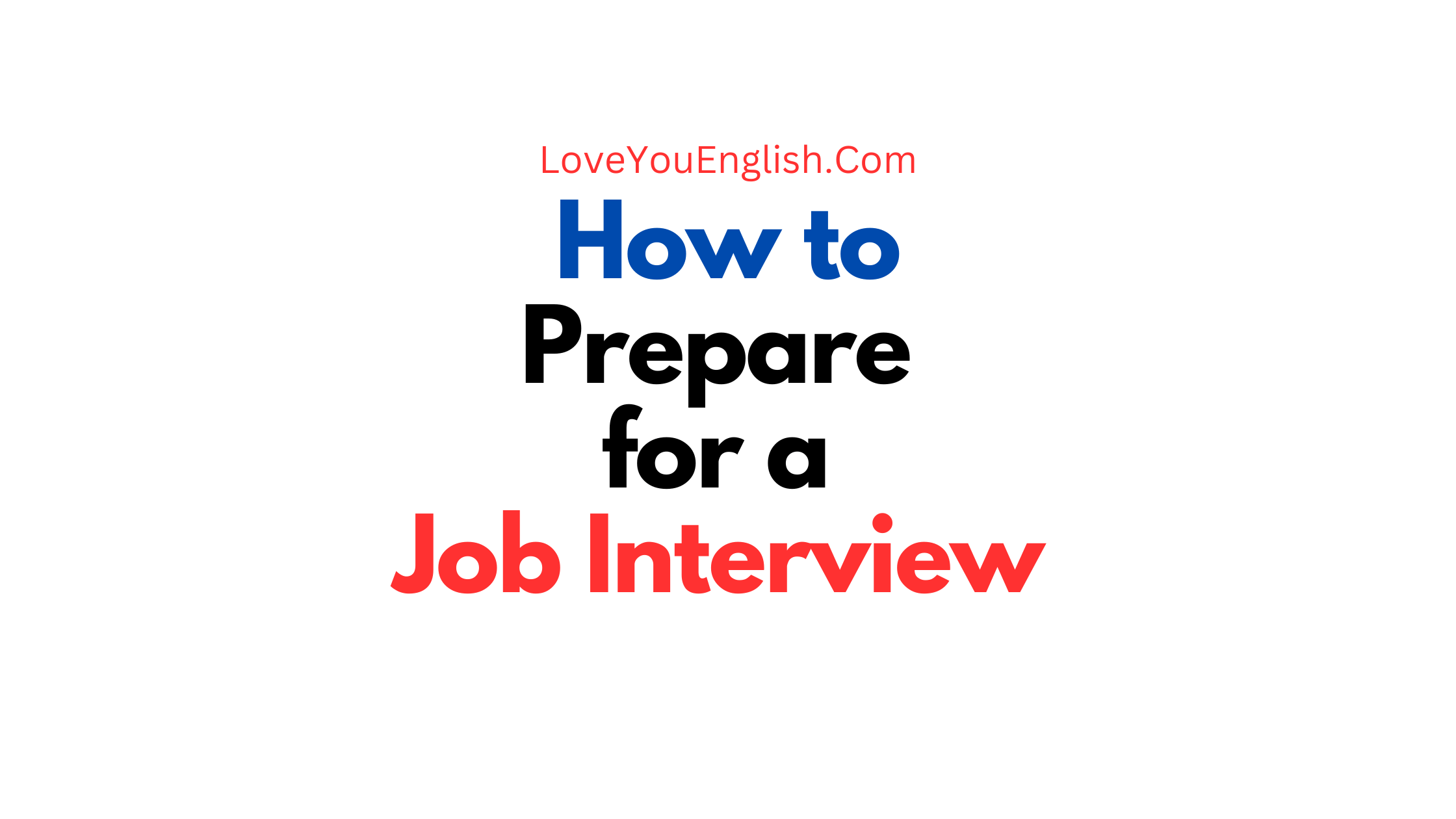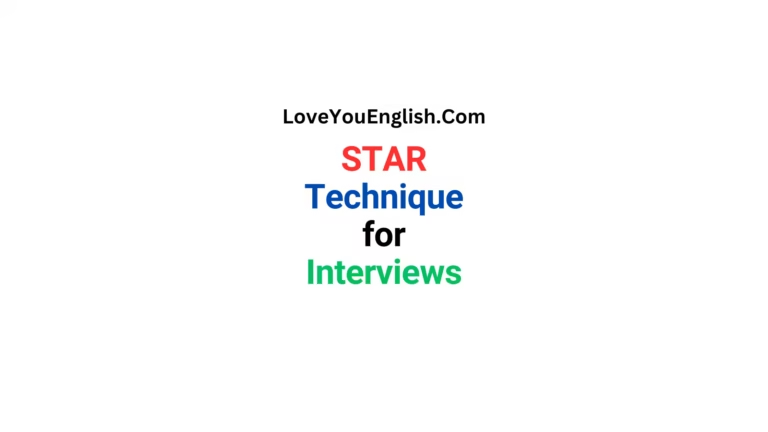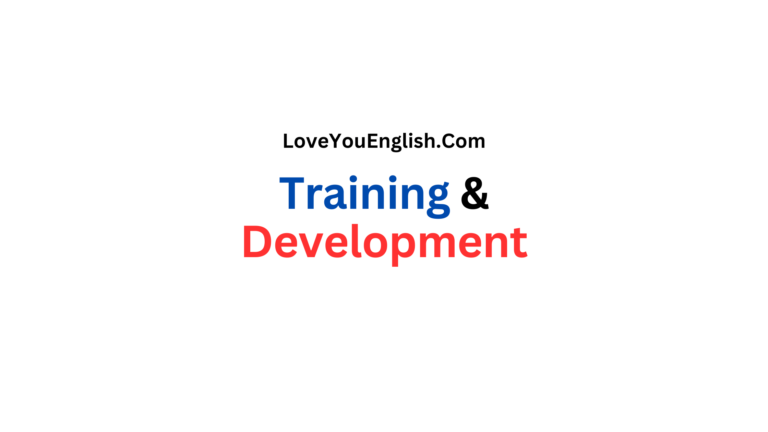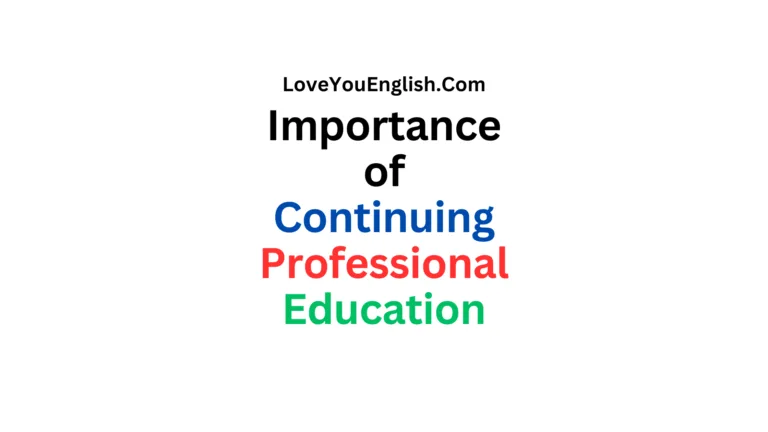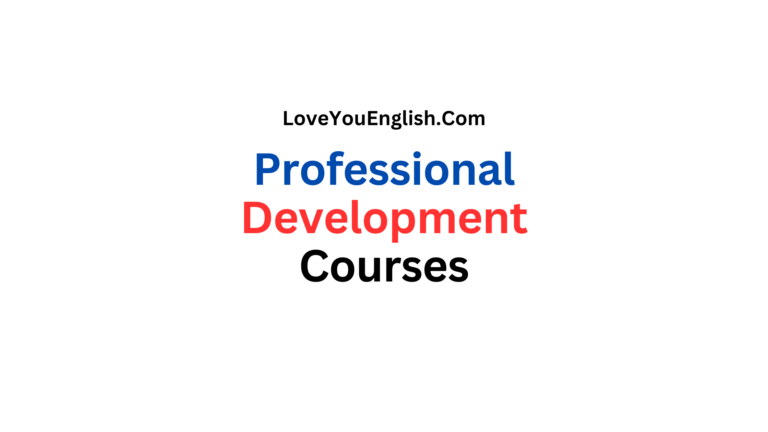How to Prepare for an Interview (Best Tips)
Getting a job interview is super cool for your career, but it can also make you feel nervous and worried.
The secret to doing great in your interview and getting your dream job is to be super prepared.
I will share the top tips and tricks to get ready for your interview, feel more confident, and improve your chances of doing well.
Research the Company
One of the most crucial steps in interview preparation is researching the company you’re applying to. This demonstrates your genuine interest in the position and helps you align your answers with the company’s values and goals.
Visit the company’s website:
Familiarize yourself with their mission statement, products or services, and recent news or achievements.
Check social media profiles:
Follow the company on platforms like LinkedIn, Twitter, and Facebook to get a sense of their culture and current initiatives.
Read industry news:
Stay informed about recent developments in the company’s sector to showcase your knowledge during the interview.
Look up the company’s competitors:
Understanding the competitive landscape will help you discuss the company’s position in the market.
Understand the Job Description
Thoroughly analyze the job description to identify the key skills and qualifications the employer is seeking. This will help you tailor your responses and highlight your relevant experiences.
Make a list of required skills:
Note both hard and soft skills mentioned in the job posting.
Identify keywords:
Pay attention to recurring phrases or industry-specific terminology.
Compare your qualifications:
Assess how your experience aligns with the job requirements and prepare examples that demonstrate your fit.
Prepare Your Answers
While you can’t predict every question you’ll be asked, you can prepare for common interview questions and develop a strategy for answering unexpected ones.
Practice the STAR method:
For behavioral questions, use the Situation, Task, Action, Result format to structure your responses.
Develop your “elevator pitch”:
Craft a concise summary of your professional background and career goals.
Prepare answers for common questions:
Some examples include:
“Tell me about yourself.”
“Why do you want to work here?”
“What are your strengths and weaknesses?”
“Where do you see yourself in five years?”
Prepare questions for the interviewer:
Having thoughtful questions ready demonstrates your interest and engagement.
Conduct Mock Interviews
Practice makes perfect, and mock interviews can help you refine your responses and build confidence.
Ask a friend or family member to act as the interviewer.
Record yourself answering questions to review your body language and verbal communication.
Use online resources or career services for professional mock interview sessions.
Prepare Your Interview Outfit
Your appearance can make a strong first impression, so choose your outfit carefully.
Research the company culture:
Dress slightly more formally than the everyday attire at the company.
Choose comfortable, well-fitting clothes:
Ensure your outfit allows you to sit and move comfortably.
Pay attention to details:
Make sure your clothes are clean, ironed, and free from any stains or damage.
Minimize distractions:
Avoid excessive jewelry or strong perfumes/colognes.
Gather Necessary Documents
Prepare a folder with important documents you might need during the interview.
Multiple copies of your resume:
Bring at least three copies printed on high-quality paper.
References:
Have a list of professional references ready if requested.
Portfolio or work samples:
If applicable to your field, bring examples of your work.
Notepad and pen:
These come in handy for taking notes during the interview.
Plan Your Route
Arriving late to an interview can severely impact your chances, so plan your journey in advance.
Research the location:
Use mapping tools to find the exact address and estimate travel time.
Do a test run:
If possible, travel to the interview location a day or two before to familiarize yourself with the route and potential parking options.
Plan to arrive early:
Aim to reach the location 10-15 minutes before your scheduled interview time.
Develop Your Personal Brand
Your personal brand is the unique combination of skills, experiences, and personality that you want to convey to potential employers.
Identify your unique selling points:
What sets you apart from other candidates?
Craft your narrative:
Develop a cohesive story that ties together your experiences and career goals.
Align your online presence:
Ensure your LinkedIn profile and other professional online accounts reflect your personal brand.
Research Your Interviewers
If you know who will be interviewing you, take some time to learn about them.
Look them up on LinkedIn:
Understanding their role and background can help you connect during the interview.
Search for any published work or interviews:
This can provide talking points and show your genuine interest.
Prepare for Different Interview Formats
Interviews can take various forms, so be ready for different scenarios.
One-on-one interviews:
The most common format, usually with a hiring manager or HR representative.
Panel interviews:
Prepare to engage with multiple interviewers simultaneously.
Group interviews:
You may be interviewed alongside other candidates, so be prepared to stand out while remaining respectful.
Video interviews:
Familiarize yourself with the platform (e.g., Zoom, Skype) and test your equipment beforehand.
Brush Up on Industry Knowledge
Staying current with industry trends and developments can set you apart as a candidate.
Read industry publications and blogs:
Stay informed about the latest news and innovations in your field.
Attend webinars or conferences:
These can provide valuable insights and networking opportunities.
Join professional associations:
Many offer resources and updates specific to your industry.
Prepare to Discuss Salary Expectations
While it’s often best to let the employer bring up salary first, be prepared to discuss your expectations if asked.
Research salary ranges:
Use sites like Glassdoor, PayScale, or industry-specific resources to understand typical compensation for the role.
Consider your experience and qualifications:
How do you compare to the job requirements?
Factor in location and company size:
These can significantly impact salary ranges.
Prepare a salary range:
Have a minimum acceptable salary in mind, but be prepared to negotiate.
Practice Active Listening
Effective communication during an interview isn’t just about what you say—it’s also about how well you listen.
Focus on the interviewer:
Give them your full attention and avoid interrupting.
Take brief notes:
Jot down key points or questions that come to mind.
Ask for clarification:
If you’re unsure about a question, it’s okay to ask for more information.
Provide thoughtful responses:
Reference specific points from the interviewer’s questions in your answers.
Work on Your Body Language
Non-verbal communication plays a crucial role in how you’re perceived during an interview.
Practice good posture:
Sit up straight and lean slightly forward to show engagement.
Maintain appropriate eye contact:
This conveys confidence and attentiveness.
Smile naturally:
A genuine smile can help create a positive atmosphere.
Be mindful of nervous habits:
Avoid fidgeting, playing with your hair, or tapping your feet.
Prepare for Behavioral Questions
Many interviewers use behavioral questions to assess how you’ve handled situations in the past.
Identify key competencies:
Review the job description for skills like leadership, teamwork, or problem-solving.
Prepare specific examples:
Think of situations where you’ve demonstrated these competencies.
Use the STAR method:
Structure your answers with Situation, Task, Action, and Result.
Practice articulating your examples:
Ensure you can explain them clearly and concisely.
Develop Your Personal Pitch
Your personal pitch is a brief summary of who you are professionally and what you can offer the company.
Keep it concise:
Aim for a 30-60 second pitch.
Highlight your unique value:
Focus on what sets you apart from other candidates.
Tailor it to the job:
Emphasize skills and experiences most relevant to the position.
Practice delivery:
Your pitch should sound natural and conversational, not rehearsed.
Prepare for Technical Questions
If you’re interviewing for a technical role, be ready to demonstrate your knowledge.
Review fundamental concepts:
Brush up on the basics of your field.
Practice problem-solving:
Many technical interviews include practical exercises.
Be prepared to explain your thought process:
Interviewers often want to understand how you approach problems.
Stay current:
Be aware of the latest technologies and methodologies in your field.
Research the Company Culture
Understanding the company culture can help you assess your fit and tailor your responses.
Check the company’s career page:
Look for information about values and work environment.
Read employee reviews:
Sites like Glassdoor can provide insights from current and former employees.
Look for culture-related content:
Many companies share blog posts or videos showcasing their culture.
Prepare questions about culture:
This shows your interest in finding the right fit.
Prepare to Discuss Your Career Goals
Interviewers often want to understand your long-term aspirations and how they align with the company.
Reflect on your career path:
Consider how this role fits into your broader career plan.
Research growth opportunities:
Understand potential career trajectories within the company.
Align your goals with the company’s mission:
Show how your aspirations can contribute to the company’s success.
Be honest but strategic:
While it’s important to be truthful, frame your goals in a way that’s relevant to the position.
Practice Stress Management Techniques
Interviews can be nerve-wracking, so it’s important to have strategies to manage stress.
Deep breathing exercises:
Practice calm, deep breaths to reduce anxiety.
Positive visualization:
Imagine yourself succeeding in the interview.
Progressive muscle relaxation:
Tense and relax different muscle groups to release physical tension.
Mindfulness meditation:
Practice being present in the moment to reduce worry about the future.
Prepare for Follow-Up Questions
Interviewers may ask for more details about your responses, so be ready to elaborate.
Anticipate potential follow-ups:
For each prepared answer, think about what additional questions might arise.
Have additional examples ready:
In case you’re asked to provide more instances of a particular skill or experience.
Be prepared to explain your reasoning:
Interviewers might ask why you made certain decisions or choices.
Plan Your Post-Interview Actions
Your actions after the interview can also impact your chances of success.
Prepare a thank-you email:
Draft a template that you can customize and send within 24 hours of the interview.
Plan to follow up:
Decide when you’ll reach out if you haven’t heard back about the next steps.
Reflect on the interview:
Take notes on what went well and areas for improvement for future interviews.
Develop a Growth Mindset
Approach the interview process as an opportunity for learning and growth.
View challenges positively:
See difficult questions as chances to showcase your problem-solving skills.
Be open to feedback:
If you receive constructive criticism, consider how you can use it to improve.
Learn from each interview:
Regardless of the outcome, each interview provides valuable experience.
Prepare for Remote Interviews
With the rise of remote work, be ready for virtual interviews.
Test your technology:
Ensure your camera, microphone, and internet connection are working well.
Choose a suitable environment:
Find a quiet, well-lit space with a professional background.
Practice virtual communication:
Familiarize yourself with looking at the camera and speaking clearly.
Have a backup plan:
Know what you’ll do if technical issues arise.
Be Authentic
While preparation is crucial, it’s equally important to be genuine during the interview.
Stay true to your values:
Don’t pretend to be someone you’re not to impress the interviewer.
Share your passion:
Let your enthusiasm for your work and the opportunity shine through.
Be honest about your experiences:
It’s okay to admit when you don’t know something or haven’t encountered a particular situation.
Conclusion
Getting ready for an interview takes a lot of work and planning.
If you follow these tips, you’ll be ready to show off your skills, experience, and personality to potential employers.
Remember, the goal isn’t just to get the job—it’s to find a role where you can do well and make a difference.
Think of each interview as a chance to learn and improve, no matter what happens.
If you prepare well and stay positive, you’ll be able to show your best self and improve your chances of getting the job you want.
Good luck with your interviews!
Explore more topics:
- 10 Common Interview Questions and Answers in English
- 6 Ways to Build Confidence at Work
- How to Prepare for a Job Interview in English
- What Is Personal Development and Why Is It Important?
- Interview Vocabulary: Words Related to Job Interviews

